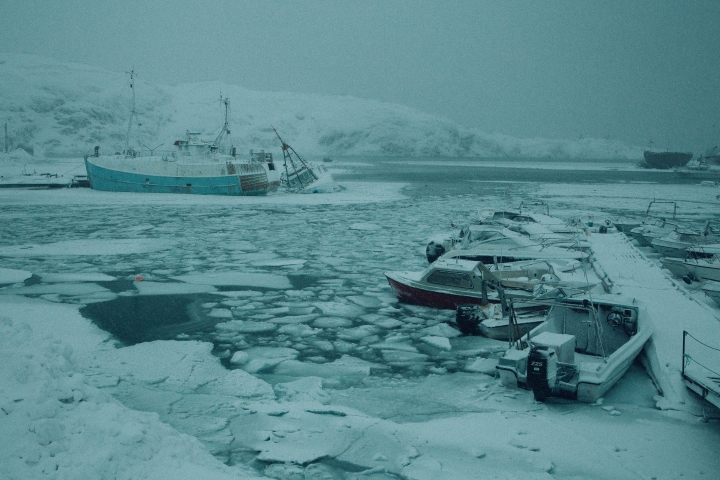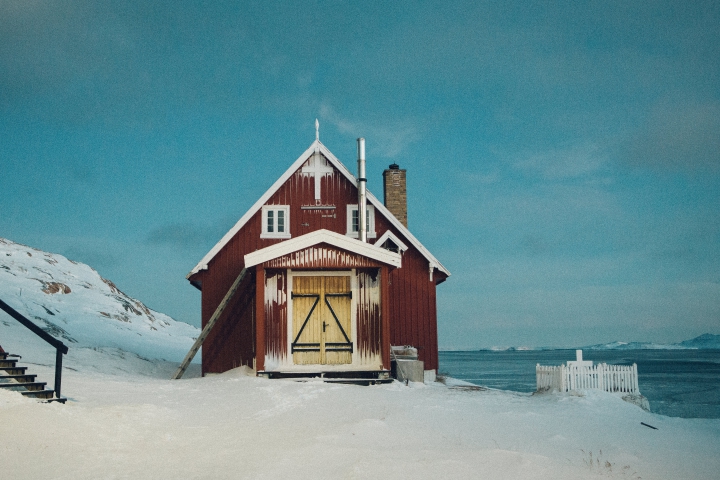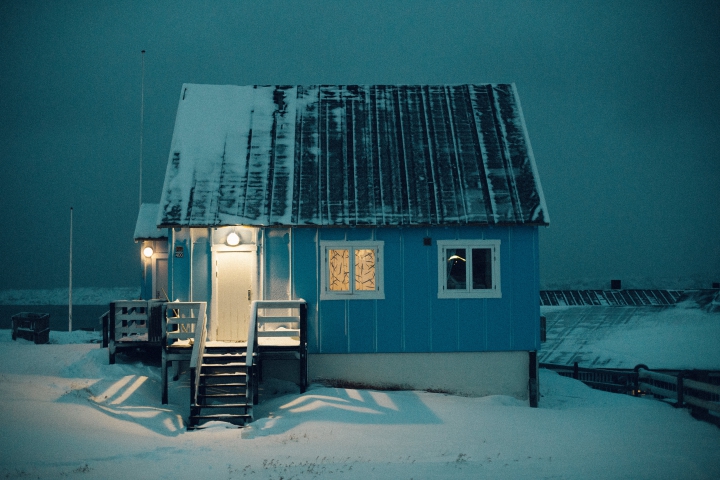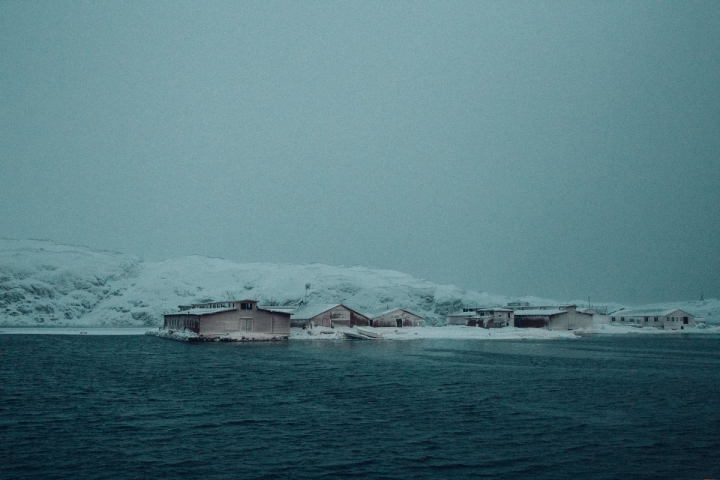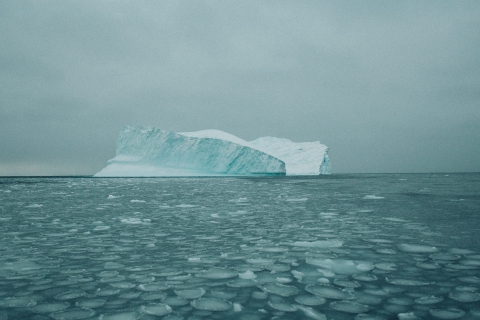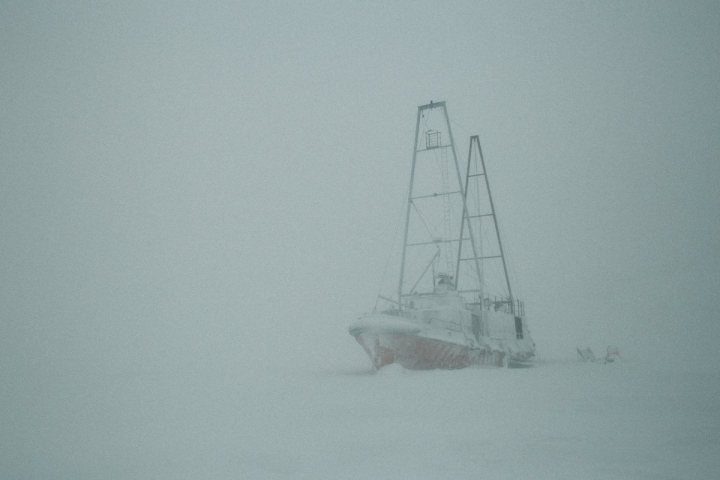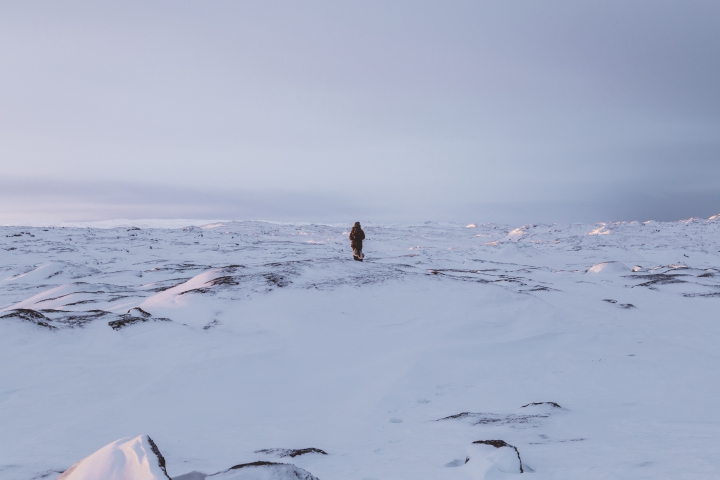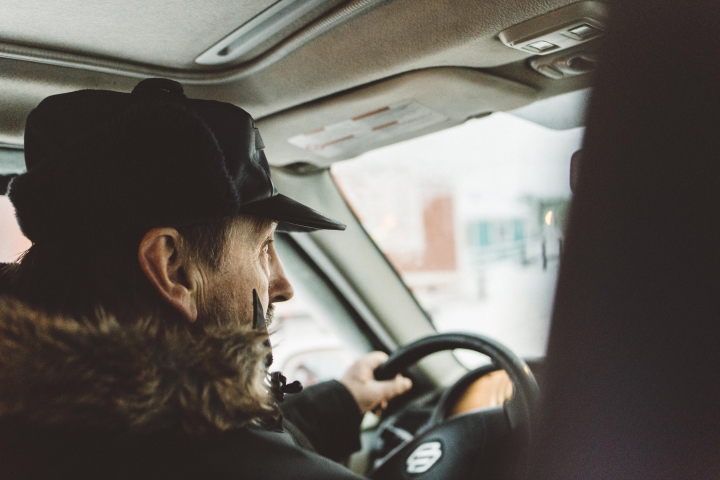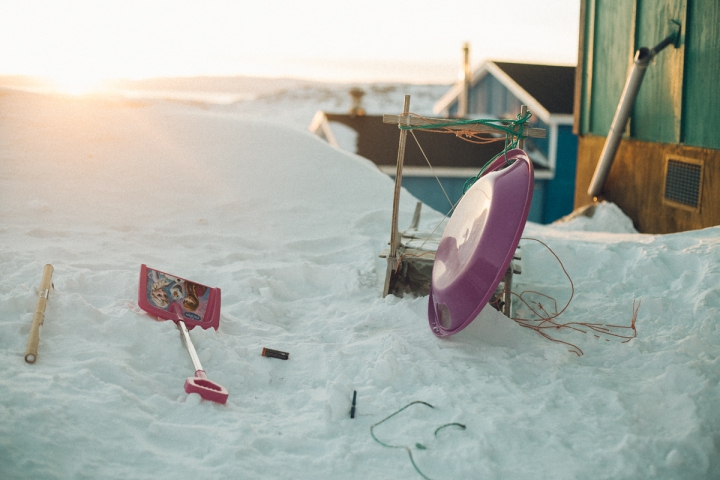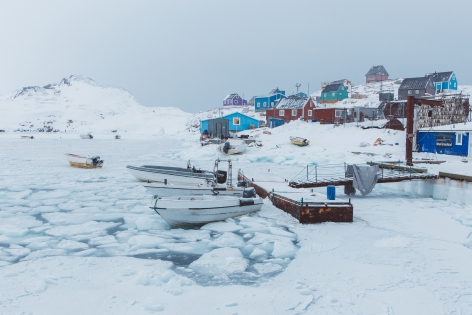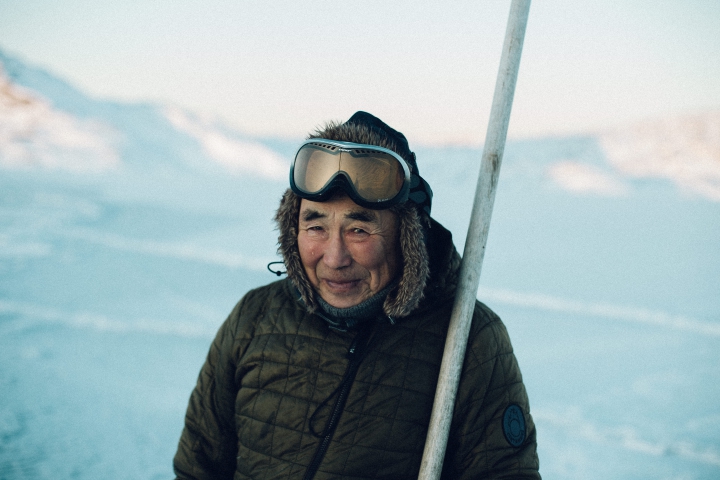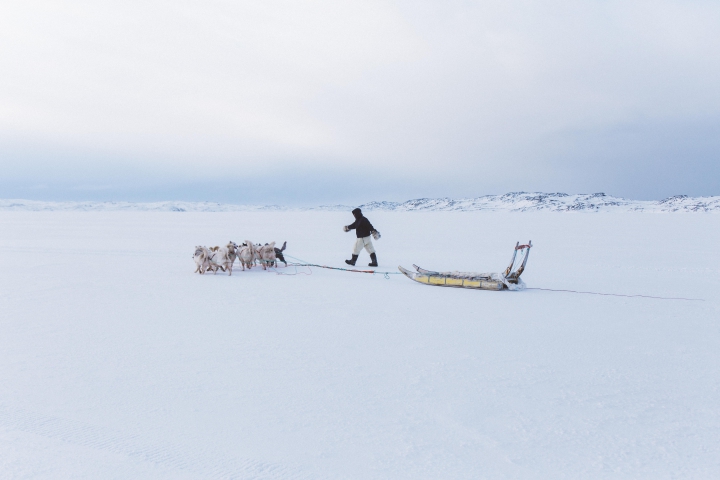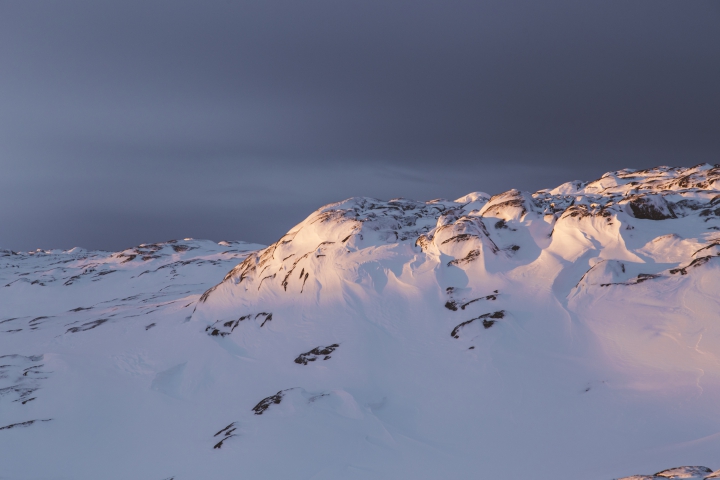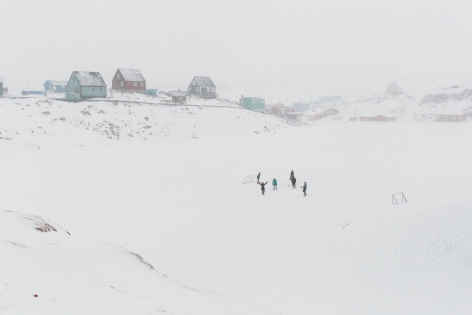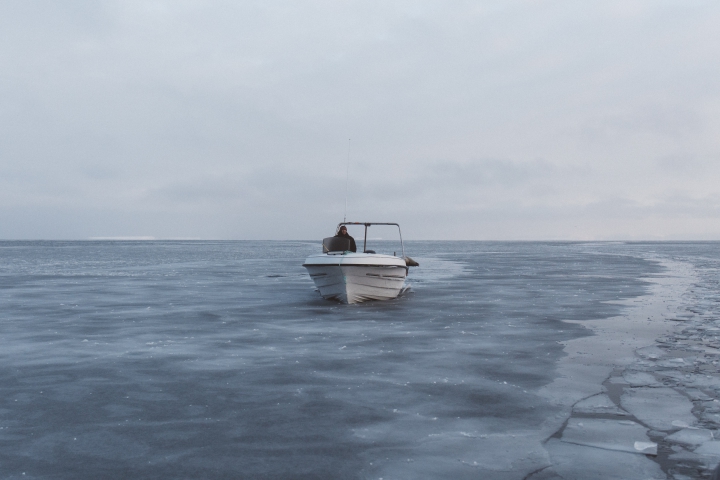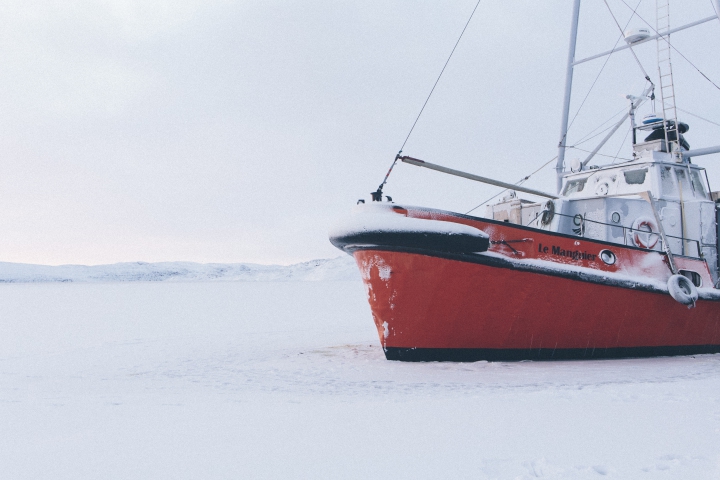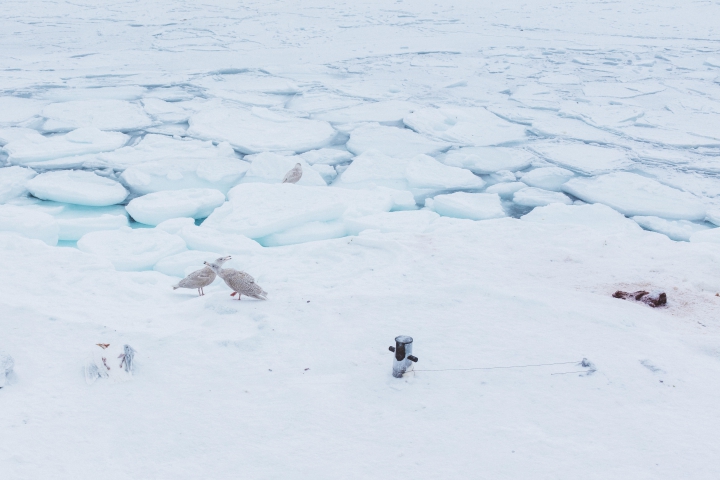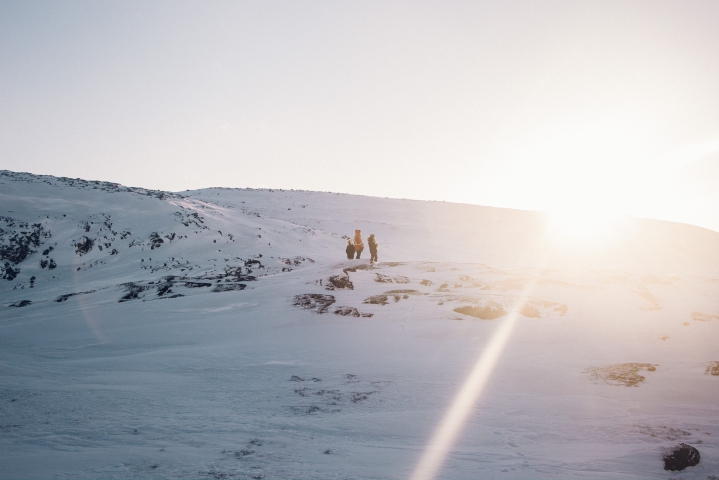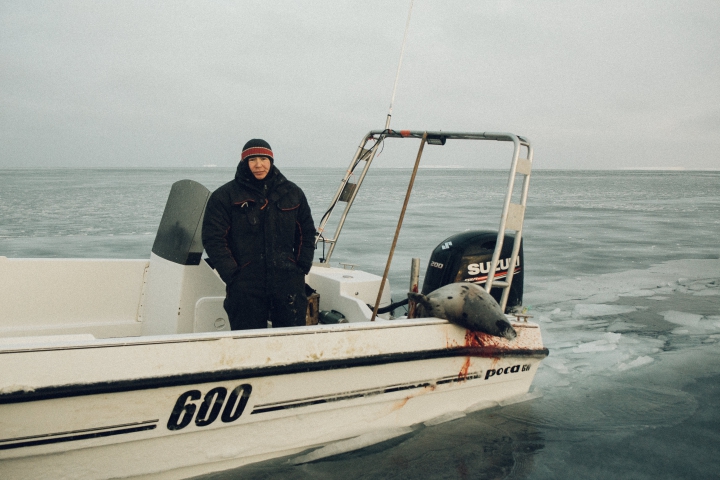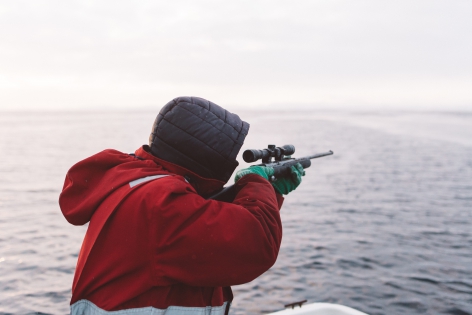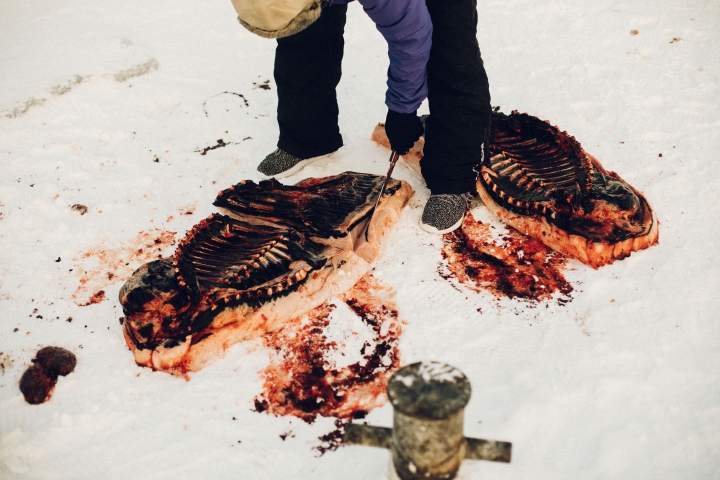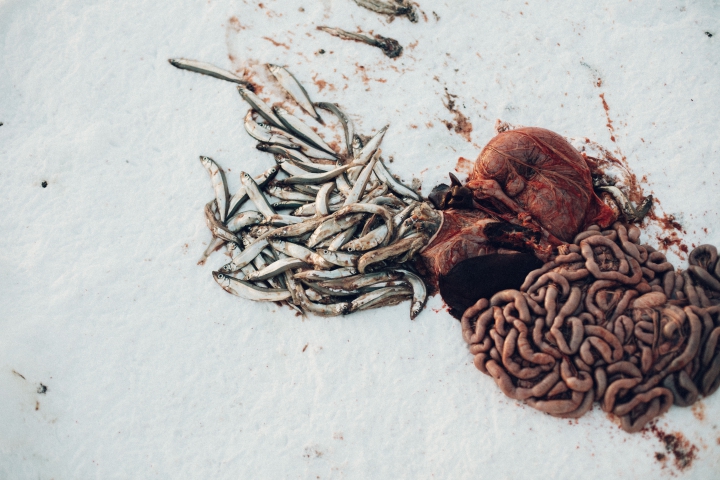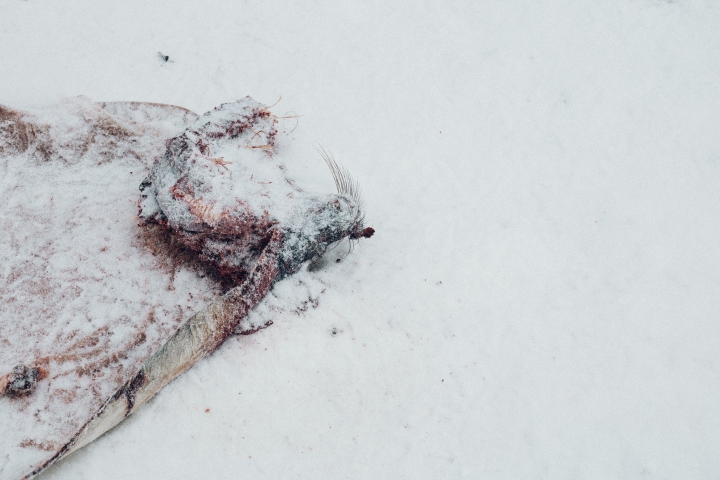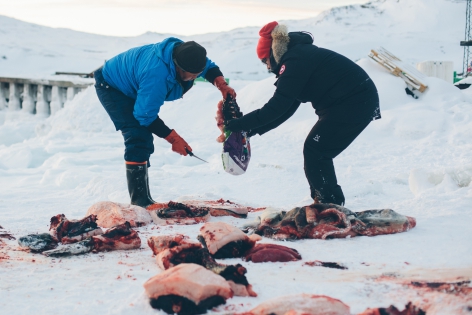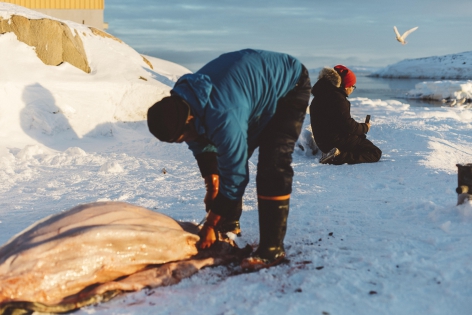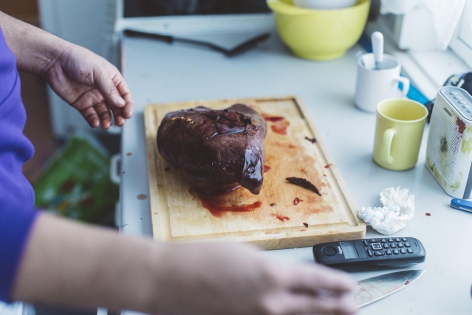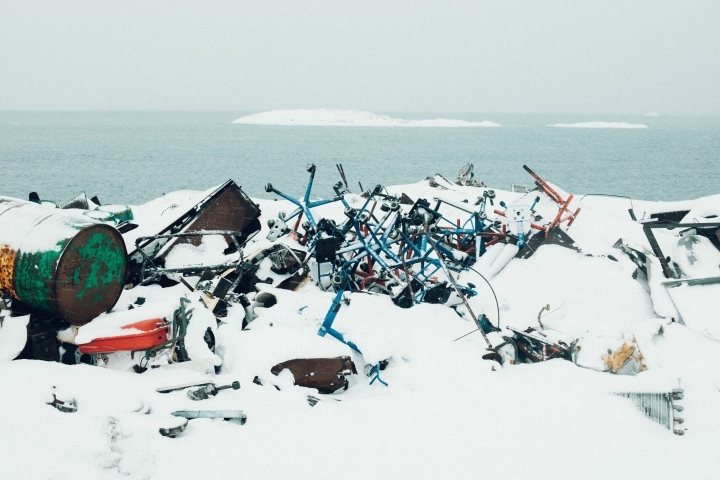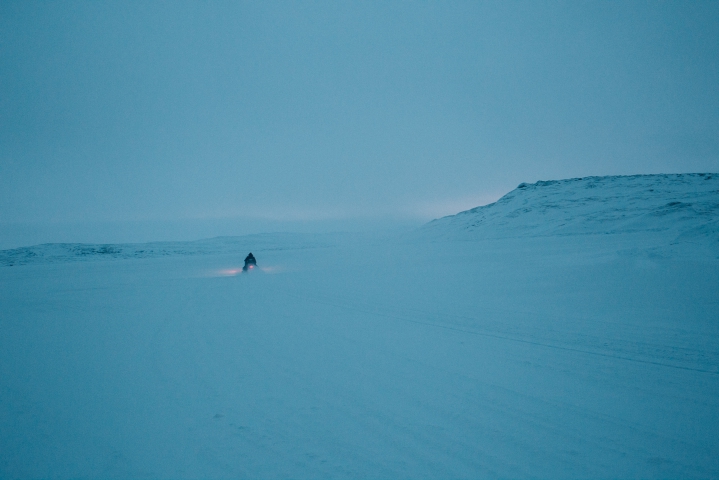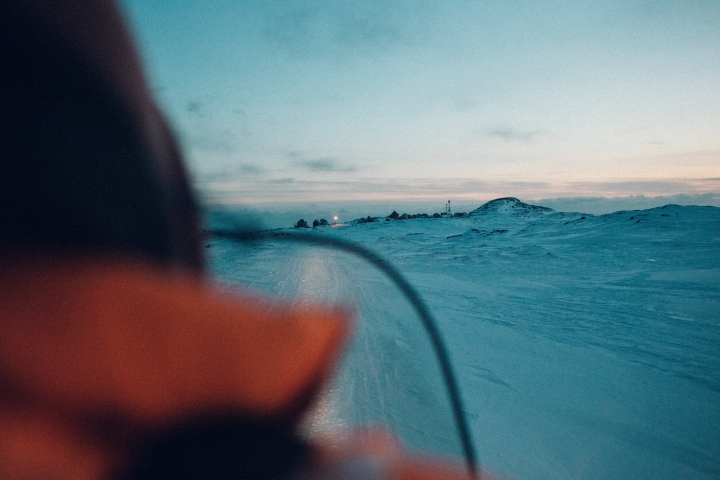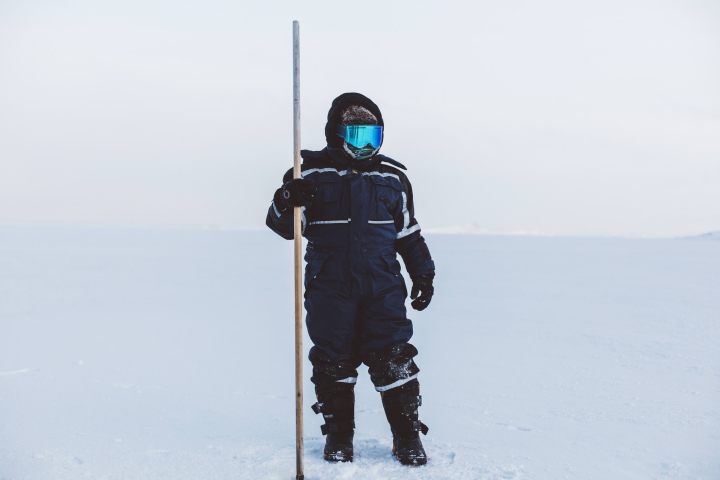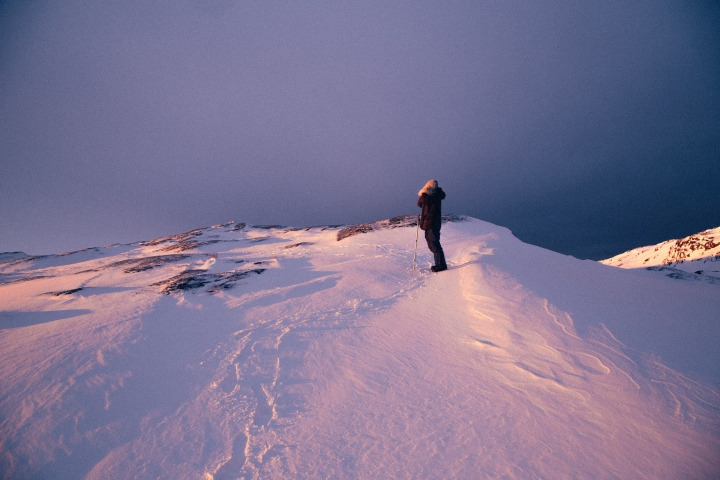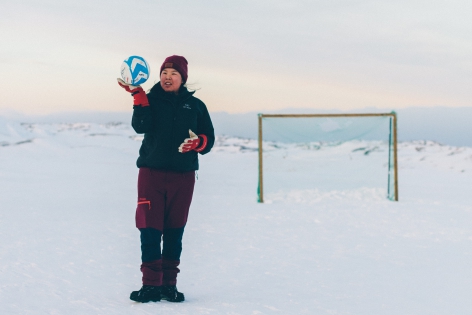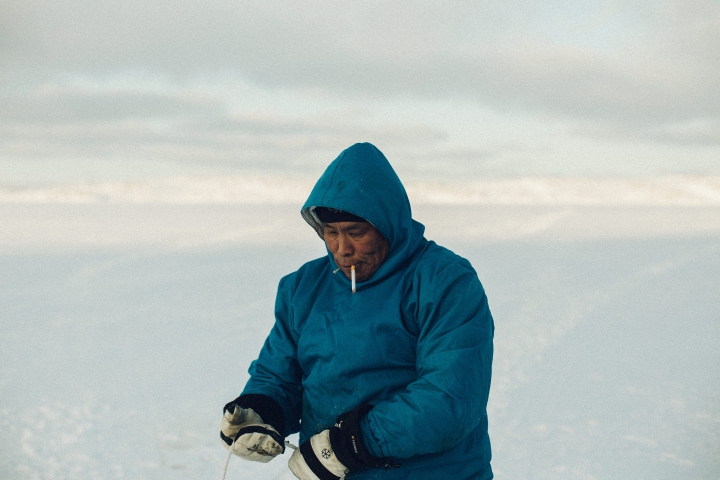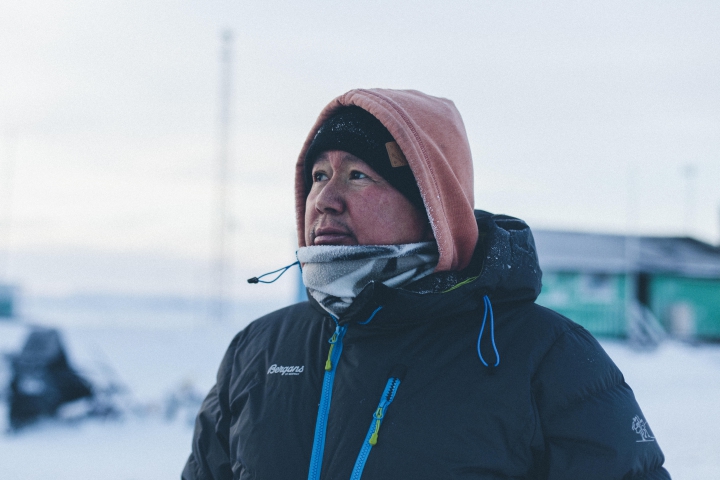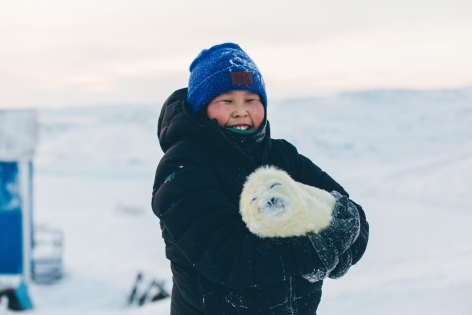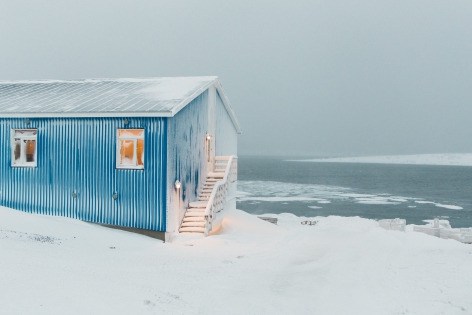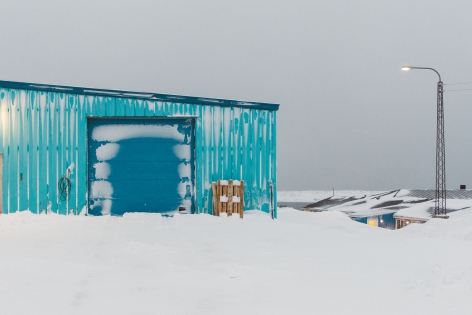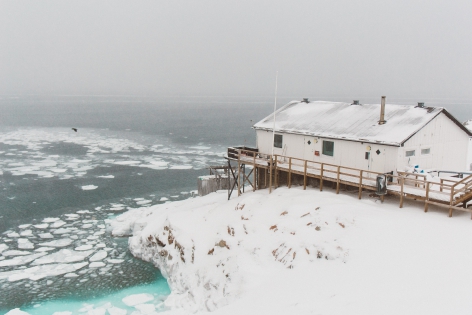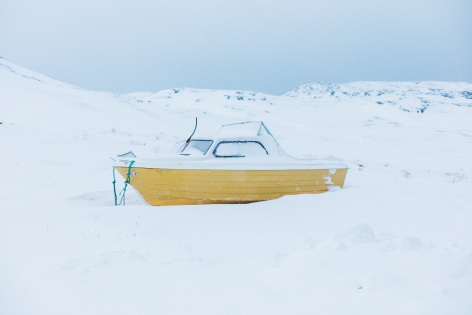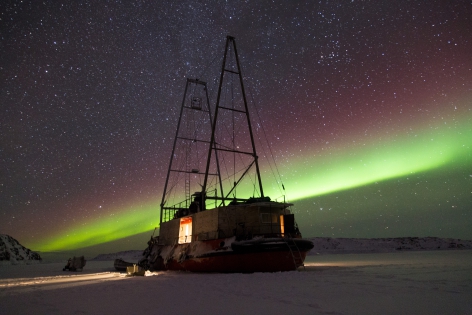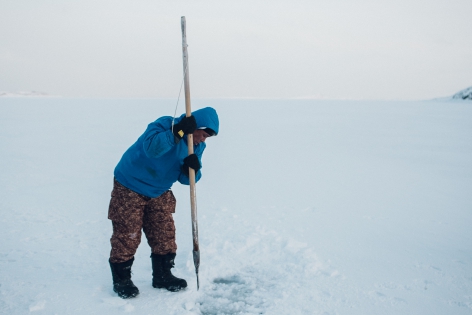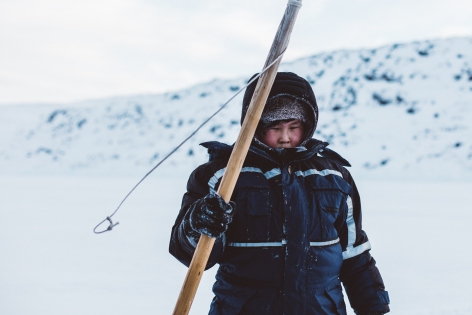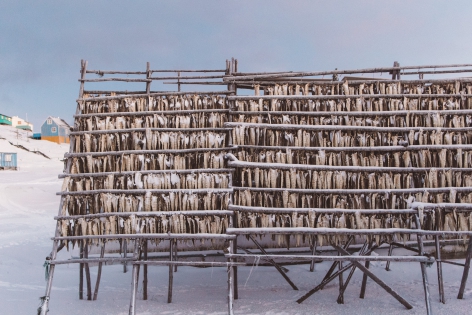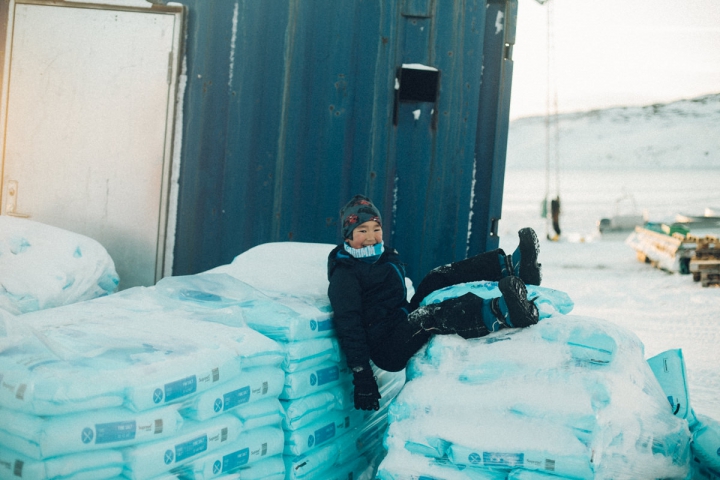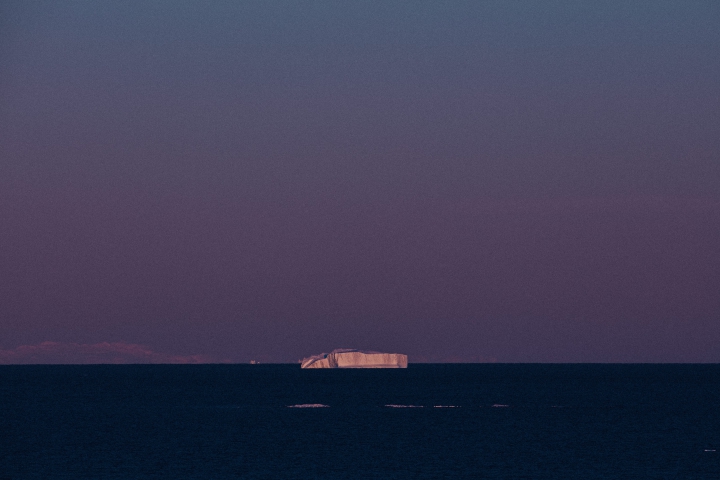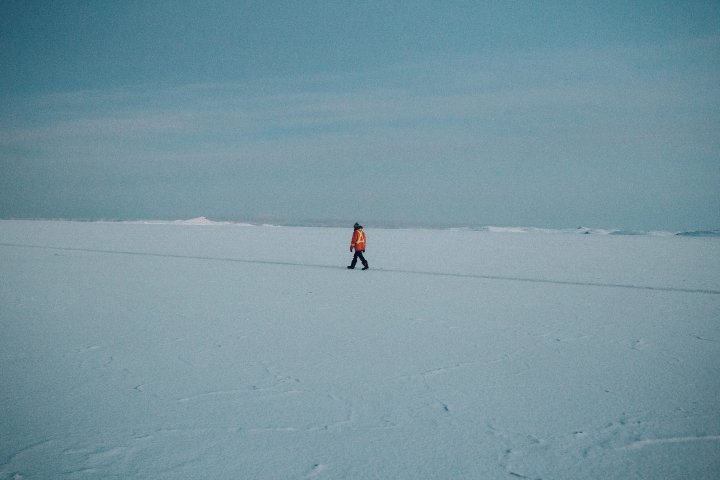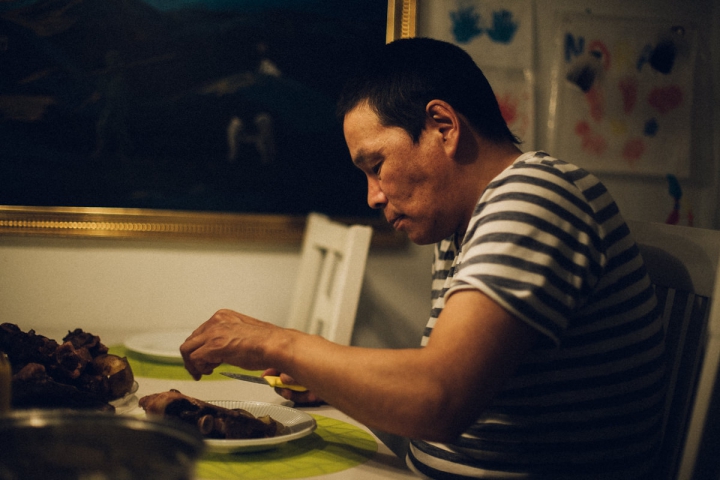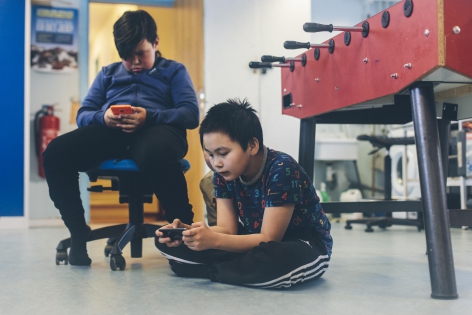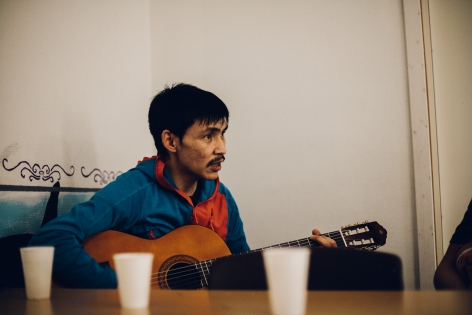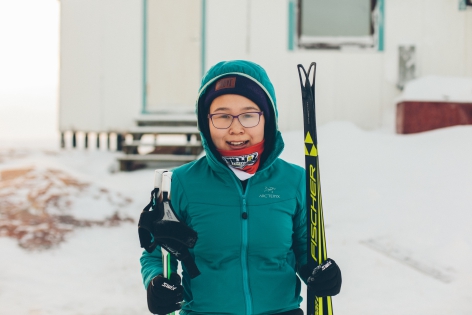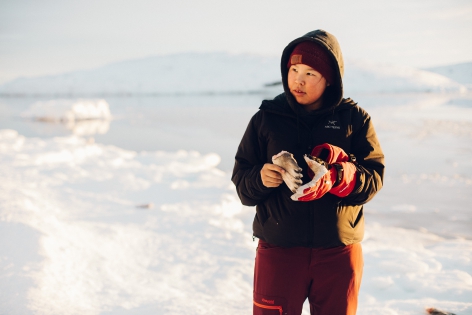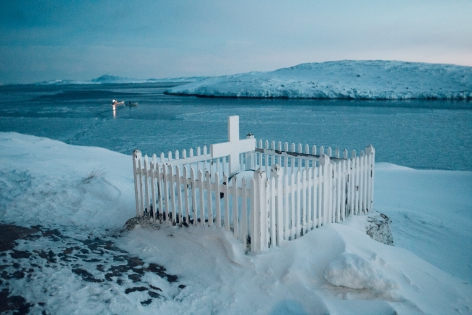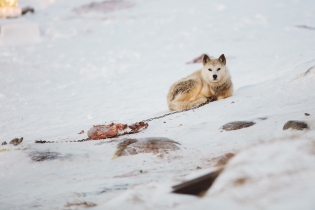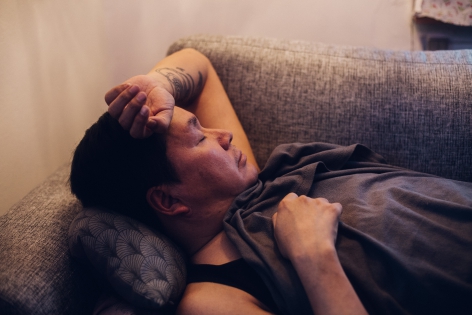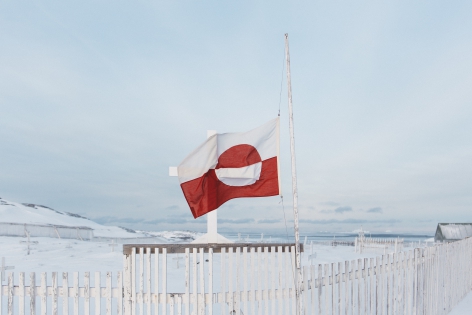Théo Giacometti
Photographer
Immaqa
It is early January all over the planet and winter is already well established in the northern hemisphere. The world is swarming and bustling, selling, buying and transporting, at full speed. But here in Greenland, the hustle and bustle seems far away. On this icy territory, the largest island in the world, winter protects people from the violent onslaught of liberalism. 56,000 inhabitants, hardly more than a commune like Montauban for a territory four times the size of France.
In the north-west of the country, on the other side of the Baffin Sea that separates Canada from Greenland, is planted a tiny island: Akunnaaq. Seventy inhabitants, Inuit, most of whom are hunters. About fifty small houses on a rocky point facing the sea, less than ten of which have running water. Outside, temperatures colder than a freezer, no roads or trees for hundreds of kilometres, a school with less than ten children. No hotel, no restaurant, no doctor. A small harbour caught in the ice, a fish cannery and a small grocery shop where ammunition, sodas and sweets are happily mixed. All around, snow, ice and the sea still resisting the West.
Concrete and local consequences of global warming, traditional fishing and hunting practices, nationalist demands, the desertification of villages and the daily life of the Arctic winter: the survival of their village is a major stake for the population. 115 inhabitants in 2013, 70 in 2018, it is hard to resist the call of the cities for young people looking for a future. Will this village be able to survive and defend its culture and traditions?
Immaqa, I am told. Perhaps it will.
Here, live in a community of seal fishermen, teenagers clinging to their smartphones, a young regional football champion, a teacher-writer, Lutheran priest and OM supporter and a few other colourful characters.
Eating seal or whale, going on foot to fetch water from a frozen lake, watching every day the pack ice catch in the small fishing port and patiently waiting for the arrival of the supply helicopter, this is the daily life of this small community cut off from the world for several months a year.
"The difference between the people of the South and the Inuit, I was told, is that the people of the South think that ice is just frozen water. Whereas the Inuit know very well that water is just melted ice. »
This year, the sea ice has had a hard time. At the end of January the temperatures even rose to -5 degrees, a few degrees higher than in Paris on the same day. The ice will only have set in places for a few short weeks.
And yet every day, Jacob gets on his ski-doo, crosses the pass and heads due south on the ice pack. Each day, only one question: is the ice pack solid enough? Will we soon be able to cross to the neighbouring island and join the "continent"? Will we be able to go hunting in richer lands?
And every day the ice is still too thin and he gently taps it with the end of his 'tuk' to measure its thickness. "Too thin. Maybe tomorrow, if it gets colder. »
While the Arctic territories quickly found themselves at the centre of new commercial and industrial wars, particularly with the opening of the Northwest Passage, the arrival of tourist cruises and new authorisations to search for oil resources in the Baffin and Barents Seas, the Inuit peoples were struggling to defend their culture and way of life. An increasing proportion of the resources, especially fish, are exported to Europe and the USA via large Danish companies. With the dramatic decline in biomass, it is becoming increasingly difficult for Greenlanders to maintain their traditional diet. As a result, they are forced to buy very expensive processed industrial goods. And thus to acquire currency, by selling what little fish they have left. A hellish circle for these peoples, too often forgotten in international agreements because they are "excluded" from the world economic system.
How long will the Inuit be able to hold out in the face of this infernal situation? After the Danish settlers forced them to convert to Christianity, then to settle in sedentary villages, in Western homes, today the modern world is crushing what little remains of their culture and way of life.
"To take part in the globalized world, to capitalize, buy and sell or disappear, you, your cold waters and your seals seem to be shouted at. »
In the north-west of the country, on the other side of the Baffin Sea that separates Canada from Greenland, is planted a tiny island: Akunnaaq. Seventy inhabitants, Inuit, most of whom are hunters. About fifty small houses on a rocky point facing the sea, less than ten of which have running water. Outside, temperatures colder than a freezer, no roads or trees for hundreds of kilometres, a school with less than ten children. No hotel, no restaurant, no doctor. A small harbour caught in the ice, a fish cannery and a small grocery shop where ammunition, sodas and sweets are happily mixed. All around, snow, ice and the sea still resisting the West.
Concrete and local consequences of global warming, traditional fishing and hunting practices, nationalist demands, the desertification of villages and the daily life of the Arctic winter: the survival of their village is a major stake for the population. 115 inhabitants in 2013, 70 in 2018, it is hard to resist the call of the cities for young people looking for a future. Will this village be able to survive and defend its culture and traditions?
Immaqa, I am told. Perhaps it will.
Here, live in a community of seal fishermen, teenagers clinging to their smartphones, a young regional football champion, a teacher-writer, Lutheran priest and OM supporter and a few other colourful characters.
Eating seal or whale, going on foot to fetch water from a frozen lake, watching every day the pack ice catch in the small fishing port and patiently waiting for the arrival of the supply helicopter, this is the daily life of this small community cut off from the world for several months a year.
"The difference between the people of the South and the Inuit, I was told, is that the people of the South think that ice is just frozen water. Whereas the Inuit know very well that water is just melted ice. »
This year, the sea ice has had a hard time. At the end of January the temperatures even rose to -5 degrees, a few degrees higher than in Paris on the same day. The ice will only have set in places for a few short weeks.
And yet every day, Jacob gets on his ski-doo, crosses the pass and heads due south on the ice pack. Each day, only one question: is the ice pack solid enough? Will we soon be able to cross to the neighbouring island and join the "continent"? Will we be able to go hunting in richer lands?
And every day the ice is still too thin and he gently taps it with the end of his 'tuk' to measure its thickness. "Too thin. Maybe tomorrow, if it gets colder. »
While the Arctic territories quickly found themselves at the centre of new commercial and industrial wars, particularly with the opening of the Northwest Passage, the arrival of tourist cruises and new authorisations to search for oil resources in the Baffin and Barents Seas, the Inuit peoples were struggling to defend their culture and way of life. An increasing proportion of the resources, especially fish, are exported to Europe and the USA via large Danish companies. With the dramatic decline in biomass, it is becoming increasingly difficult for Greenlanders to maintain their traditional diet. As a result, they are forced to buy very expensive processed industrial goods. And thus to acquire currency, by selling what little fish they have left. A hellish circle for these peoples, too often forgotten in international agreements because they are "excluded" from the world economic system.
How long will the Inuit be able to hold out in the face of this infernal situation? After the Danish settlers forced them to convert to Christianity, then to settle in sedentary villages, in Western homes, today the modern world is crushing what little remains of their culture and way of life.
"To take part in the globalized world, to capitalize, buy and sell or disappear, you, your cold waters and your seals seem to be shouted at. »
